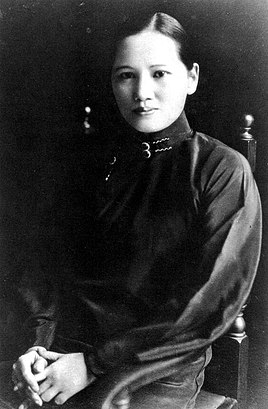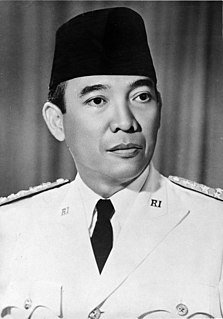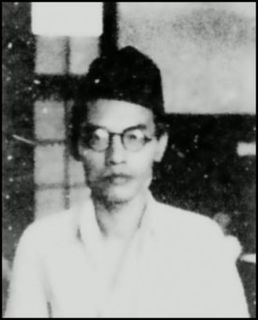
Việt Minh was a national independence coalition formed at Pác Bó by Hồ Chí Minh on May 19, 1941. The Việt Nam Độc Lập Đồng Minh Hội had previously formed in Nanjing, China, at some point between August 1935 and early 1936 when Vietnamese nationalist parties formed an anti-imperialist united front. This organization soon lapsed into inactivity, only to be revived by the Indochinese Communist Party (ICP) and Hồ Chí Minh in 1941. The Việt Minh established itself as the only organized anti-French and anti-Japanese resistance group. The Việt Minh initially formed to seek independence for Vietnam from the French Empire. The United States supported France. When the Japanese occupation began, the Việt Minh opposed Japan with support from the United States and the Republic of China. After World War II, the Việt Minh opposed the re-occupation of Vietnam by France, resulting in the Indochina War, and later opposed South Vietnam and the United States in the Vietnam War. The political leader and founder of Việt Minh was Hồ Chí Minh. The military leadership was under the command of Võ Nguyên Giáp. Other founders were Lê Duẩn and Phạm Văn Đồng.

Rosamond Soong Ching-ling was a Chinese political figure. As the third wife of Sun Yat-sen, one of the leaders of the 1911 revolution that established the Republic of China, she was often referred to as Madame Sun Yat-sen. She was a member of the Soong family and, together with her siblings, played a prominent role in China's politics prior to and after 1949.

Sukarno was an Indonesian politician who was the first president of Indonesia, serving from 1945 to 1967.
South East Asia Command (SEAC) was the body set up to be in overall charge of Allied operations in the South-East Asian Theatre during World War II.

Pramoedya Ananta Toer was an Indonesian author of novels, short stories, essays, polemics and histories of his homeland and its people. His works span the colonial period under Dutch rule, Indonesia's struggle for independence, its occupation by Japan during the Second World War, as well as the post-colonial authoritarian regimes of Sukarno and Suharto, and are infused with personal and national history.

The Communist Party of Indonesia was a communist party in Indonesia during the mid-20th century. It was the largest non-ruling communist party in the world before its eradication in 1965 and ban the following year. The party had two million members in the 1955 elections, with 16 percent of the national vote and almost 30 percent of the vote in East Java. During most of the period immediately following independence until the eradication of the PKI in 1965, it was a legal party operating openly in the country.

Tan Malaka was a teacher, Indonesian philosopher, founder of Struggle Union and Murba Party, independent guerrilla, Indonesian fighter, and Indonesian national hero. Tempo credited him as Father of the Republic of Indonesia.
Anarchism in China was a strong intellectual force in the reform and revolutionary movements in the early 20th century. In the years before and just after the overthrow of the Qing dynasty Chinese anarchists insisted that a true revolution could not be political, replacing one government with another, but had to overthrow traditional culture and create new social practices, especially in the family. "Anarchism" was translated into Chinese as 無政府主義 literally, "the doctrine of no government."

The Japanese Empire occupied the Dutch East Indies, during World War II from March 1942 until after the end of the war in September 1945. In Indonesian history, the period was one of the most critical.

Hadji Samanhudi was the founder of Sarekat Dagang Islam, an organization in Indonesia that previously served as an association for batik traders in Surakarta, and later broadened its scope to nationalist political issues.
The Bandung Sea of Fire was the deliberate burning of much of the southern side of the city of Bandung by retreating Indonesian Republican troops during the Indonesian National Revolution.

North Vietnam, officially the Democratic Republic of Vietnam (DRV) was a state in Southeast Asia from 1945 to 1954 and a country from 1954 to 1976.
The decolonization of Asia was the gradual growth of independence movements in Asia, leading ultimately to the retreat of foreign powers and the creation of a number of nation-states in the region. A number of events were catalysts for this shift, most importantly the Second World War. Prior to World War II, some countries had already proclaimed independence.

In the northern-hemisphere summer of 1940 Germany rapidly defeated the French Third Republic, and colonial administration of French Indochina passed to the French State. In September 1940 Japanese troops first entered parts of Indochina; and in July 1941 Japan extended its control over the whole of French Indochina. The United States, concerned by Japanese expansion, started putting embargoes on exports of steel and oil to Japan from July 1940. The desire to escape these embargoes and to become self-sufficient in resources ultimately contributed to Japan's decision to attack on December 7, 1941 the British Empire and simultaneously the USA and at Pearl Harbor, Hawaii). This led to the USA declaring war against Japan on December 8, 1941. The US then joined the British Empire, already at war with Germany since 1939, and its existing allies in the fight against the Axis powers.
The East Sumatra revolution, also known as the East Sumatra Social Revolution, began on 3 March 1946. Across 25 "native states", many sultanates were overthrown and mass killing of members of the aristocratic families were performed by armed pergerakan groups. To the opportunistic pergerakan militants, the revolutionary movement was seen as one of the means for East Sumatra to be freed from colonial overlordship and to join the larger Indonesian National Revolution. Participants of the revolution were believed to be provoked by leaders to kill aristocrats and create violence. These belligerents had three prime objectives: to eliminate the sultans and aristocrats, to seize their wealth and to eliminate the region's feudal social structure. The revolution brought about the formation of the State of East Sumatra), which was dissolved when the region became part of the Indonesian republic.

The Chinese Communist Revolution, known in mainland China as the War of Liberation, was the conflict, led by the Communist Party of China and Chairman Mao Zedong, that resulted in the proclamation of the People's Republic of China, on 1 October 1949. The revolution began in 1946 after the Second Sino-Japanese War (1937–45) and was the second part of the Chinese Civil War (1945–49).

Djawoto was an Indonesian journalist and diplomat. He served as Indonesia's ambassador to China and Mongolia starting in 1964.

A revolutionary wave or revolutionary decade is a series of revolutions occurring in various locations within a similar time span. In many cases, past revolutions and revolutionary waves have inspired current ones, or an initial revolution has inspired other concurrent "affiliate revolutions" with similar aims. The causes of revolutionary waves have been studied by historians and political philosophers, including Robert Roswell Palmer, Crane Brinton, Hannah Arendt, Eric Hoffer, and Jacques Godechot.

Chung Hwa Hui, also known as CHH, was a conservative, largely pro-Dutch political organisation and party in the Dutch East Indies, often criticised as a mouthpiece of the colonial Chinese establishment. The party campaigned for legal equality between the colony's ethnic Chinese subjects and Europeans, and advocated ethnic Chinese political participation in the Dutch colonial state.
Tjoe Boe San was a Peranakan Chinese nationalist, translator and newspaper editor in the Dutch East Indies, most notably editor and director of the influential Indonesian Chinese newspaper Sin Po until his death in 1925. Along with Kwee Kek Beng, he was a key member of the "Sin Po Group" which was a political faction of the Indonesian Chinese which believed that they should stay out of Dutch colonial politics and remain focused on China.













